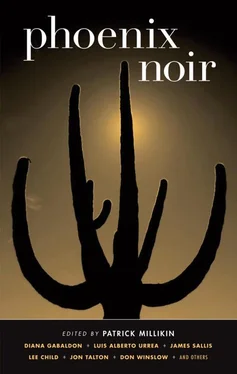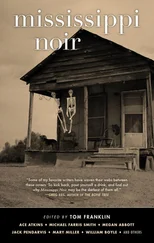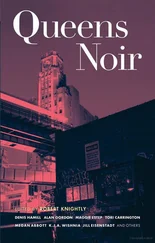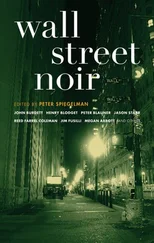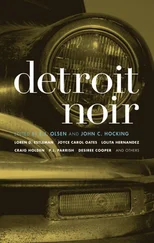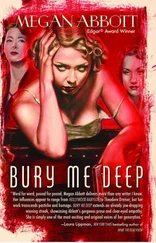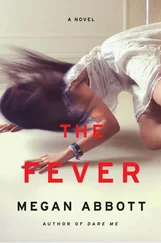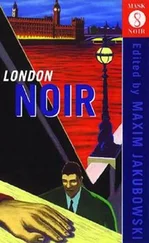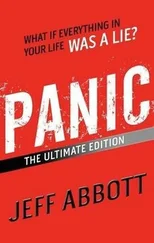Megan Abbott - Phoenix Noir
Здесь есть возможность читать онлайн «Megan Abbott - Phoenix Noir» весь текст электронной книги совершенно бесплатно (целиком полную версию без сокращений). В некоторых случаях можно слушать аудио, скачать через торрент в формате fb2 и присутствует краткое содержание. Город: New York, Год выпуска: 2009, ISBN: 2009, Издательство: Akashic Books, Жанр: Детектив, на английском языке. Описание произведения, (предисловие) а так же отзывы посетителей доступны на портале библиотеки ЛибКат.
- Название:Phoenix Noir
- Автор:
- Издательство:Akashic Books
- Жанр:
- Год:2009
- Город:New York
- ISBN:978-1-933354-85-9
- Рейтинг книги:5 / 5. Голосов: 1
-
Избранное:Добавить в избранное
- Отзывы:
-
Ваша оценка:
- 100
- 1
- 2
- 3
- 4
- 5
Phoenix Noir: краткое содержание, описание и аннотация
Предлагаем к чтению аннотацию, описание, краткое содержание или предисловие (зависит от того, что написал сам автор книги «Phoenix Noir»). Если вы не нашли необходимую информацию о книге — напишите в комментариях, мы постараемся отыскать её.
Phoenix Noir — читать онлайн бесплатно полную книгу (весь текст) целиком
Ниже представлен текст книги, разбитый по страницам. Система сохранения места последней прочитанной страницы, позволяет с удобством читать онлайн бесплатно книгу «Phoenix Noir», без необходимости каждый раз заново искать на чём Вы остановились. Поставьте закладку, и сможете в любой момент перейти на страницу, на которой закончили чтение.
Интервал:
Закладка:
At the main library on Central, an imposing five-story rectangular structure seemingly modeled on a space-age toaster, he went through collected bound hard copy and microfiche newspaper accounts of the shooting. He studied the coverage in the black newspaper, the Arizona Sun , and the white press too, including the Herald Examiner in L.A. The pieces contained various mentions of the pioneering civil rights work of Hayzell Mumford’s parents, the Reverend Asa Fairchild Mumford and Dr. Justine Mumford, PhD in social anthropology. From World War Two and Jim Crow — divided Fort Huachuca, where the reverend was an officer not inclined to bow and scrape to whites, to the early ’90s, the Mumfords were a driving force in various struggles for social justice. From job equality in the public sphere, school betterment for minority students, and housing integration in the greater Phoenix area, they’d been at the center of many pivotal moments of change in the state.
On July 4, 1976, during the nation’s bicentennial, Phoenix, like a lot of cities, put on a large parade and celebration. The Mumfords were to be honored, and, Monk noted in one account, the Sugar Kings were slated to perform. But it had been the week before that the fight had taken place at the studio, so naturally that segment of the festivities had been canceled.
From what Monk could gather, the reverend was not a fan of his son’s avocation. “I cannot be reconciled with Hayzell’s pursuit of these most temporal and tempting of concerns,” Mumford was quoted. Another article contained, “I can only continue to pray that the Lord will guide him out of this episode of his life and return him to the fold.”
More recent online searches showed that the father had died in 1998. The partisans who attended the funeral included Harry Belafonte, Oliver Stone, who at that time was trying to get a film made about the Mumfords, and former Congressman Gus Hawkins, the first black man elected to the California legislature. Monk then read a quote from Nazeen Loveless in the Examiner :
One shot and Hayzell goes down, a fatal wound to his chest. We came rushing in, and at that moment, precisely, his mother arrived to surprise him because she wanted to take him to lunch. It had been weeks since he’d been back in Phoenix.
Monk did an eyebrow raise worthy of Spock. He then searched for references to Parchman. There were no articles about him online except for the time during the shooting. But looking back at the bound hard copies of the black newspaper, he spotted several ads for local clubs where Burris was listed as a headliner. The last one was from 2004. That was just a few years back, indicating he was still active, at least then, in the Phoenix area. Loveless and Thaxton had said Parchman had disappeared before that. Maybe he snuck into town and left promptly. Or maybe not.
Burris Parchman wasn’t listed in the white pages, and though Monk called several music booking agents, he got nada. He did find a listing for the Mumfords’ church, Greater First Congregational Methodist on East Jefferson, once the heart of the black community’s south side.
“Yes, you see,” Monk told the helpful woman over the phone, “I’m wondering for the purposes of this documentary we’re putting together if we could interview Mrs. Mumford. I realize she retired some time ago. Is there a way you can get her a message?”
“I would like to help you,” she said. “Justine would love to participate, only...”
“Yes?” Monk said in a solicitous tone. What sort of bad ju-ju was he racking up lying to a good woman like this?
“She’s been under the weather,” the woman said in a way that suggested Mrs. Mumford wasn’t simply suffering from a cold. She was in her eighties, after all. “Let me see what I can do. Give me a number to reach you at, would you?”
He gave her his cell number and the one to his office in Los Angeles, then hung up.
Monk walked about downtown, came upon a barbecue rib and chicken joint, and had a late lunch. It was past 2 and still over a hundred degrees of dry heat. His cell chimed as he swallowed a bite of tri-tip sandwich. After his hello, a quiet voice said, “My name’s Burris Parchman. I hear you’ve been looking for me.”
“Oh, yes, sir. Who told you?”
“Charley did. Course, he also convinced me to let him resurrect my so-called career. Once the Sugar Kings compilation comes out, he said he’d be able to get me some new gigs.” He had a rumble of a laugh like the organ he played. “Well, one thing at a time, I guess.”
“Where are you?” The number and area code hadn’t come up on Monk’s screen.
“Sure, let me give you this address. I’m staying with a friend.”
The house was a neat little Craftsman not unlike those Monk was familiar with in the older parts of L.A. It was east of downtown in a mostly Latino section judging from the Llantas Goodyear and mini-mercado signs.
“Come on in,” a pleasant voice said on the other side of a screen door.
“Thanks,” Monk said, stepping into a freshly painted room with little furniture and no TV. The hardwood floors looked like they’d been recently refinished. The walls were bare.
“She’s getting some work done,” Burris Parchman remarked. The musician was a thin, medium-complexioned black man in his mid-sixties with a trim mustache and receding hairline. He wore wrinkled khakis, a short-sleeved shirt, and raggedy tennis shoes. “As you can see,” he continued, pointing at the open windows, “the air-conditioning hasn’t been put back in. But I have some iced tea. I was just about to have a glass. You?”
“Sure, that’d be great,” Monk said.
“Cop a squat,” Parchman said as he stepped into the kitchen. He soon returned with two glasses and put one before Monk on a side table. The coaster was already in place and was from the Raven’s Mill.
“So tell me about this project.”
Monk sipped his drink and began to speak, half rising from his chair to hand over the paperwork. His head suddenly felt light and he sat back down quickly, his mouth dry despite the liquid. Coltrane’s sax was moaning “Naima,” but he knew there was no music on. He drained his drink, his throat closing up. He stared at the residue in the bottom of the glass. Were those scales?
“Say,” Monk began, dropping the glass, his fingers telling him to do so. “Why would Minnie and Nazeen Love... Love nobody.” He giggled but it sounded like one of those demon clowns in a low-budget horror movie. “Why would they lie to me about where to find you?” Why was it so hard to get a sentence out?
“This is the West, Mr. Monk. We protect our legends around here.” Parchman seemed to be talking to him underwater. It was as if Monk were floating up to the moon and watching the earth recede beneath him. He stood but his shoes had ballooned way out of proportion like in a cartoon. He fell over and was quite content to lie there on his side, his ear to the floor listening for the woo woo of the Underground Railroad. He smacked his lips, tasting purple while he counted the infinite swirls and whirls within the wood floor. His heart beat rapidly and sweat doused his face and shirt front.
“How long will he be like that?”
“I don’t know but we need to get him out of here. Then wipe the house down for his prints and put the For Sale sign back up.”
Monk rolled over and glared hazily at the green Martians with their elongated heads discussing his fate. Through a window he could see a giant ant from Them looking at him too. He decided this was a party. Especially since Lee Dorsey was singing, “ Everything I do gohn be funky from now on .” He sang along, trying to snap his fingers.
Читать дальшеИнтервал:
Закладка:
Похожие книги на «Phoenix Noir»
Представляем Вашему вниманию похожие книги на «Phoenix Noir» списком для выбора. Мы отобрали схожую по названию и смыслу литературу в надежде предоставить читателям больше вариантов отыскать новые, интересные, ещё непрочитанные произведения.
Обсуждение, отзывы о книге «Phoenix Noir» и просто собственные мнения читателей. Оставьте ваши комментарии, напишите, что Вы думаете о произведении, его смысле или главных героях. Укажите что конкретно понравилось, а что нет, и почему Вы так считаете.
